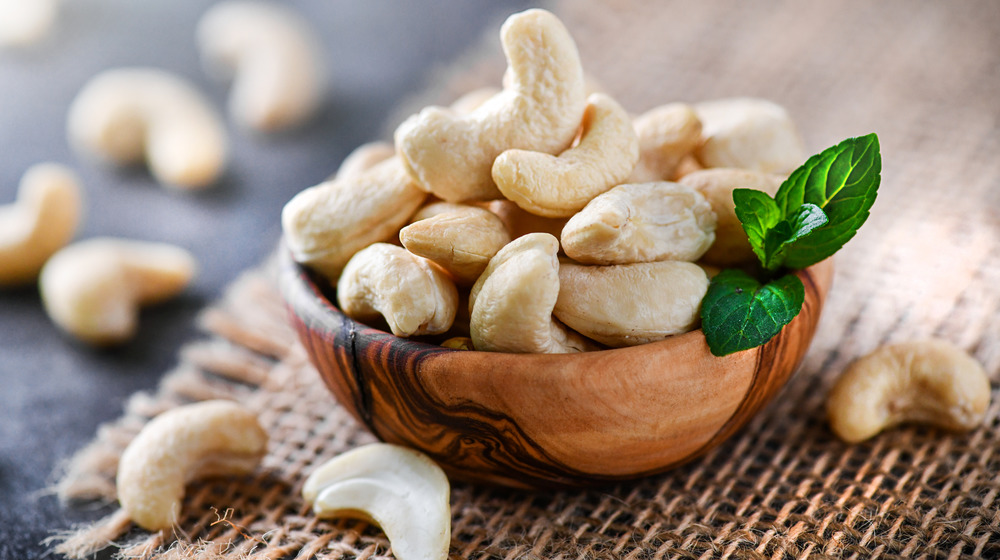Why Eating Cashews Could Be More Risky Than You Think
Cashews have grown exponentially in popularity in recent years, especially as a dairy-free cream replacement and as a nut butter. But what you may not have heard is that this tree nut can be risky if not consumed in the correct form.
Known for their nutritional benefits as a healthy snack, these nuts contain protein, fiber and iron (via Livestrong). They unfortunately also have a natural toxin, urushiol, which typically sits in an oil form between the raw nut and the shell as well as in the tree's leaves, root and stem, according to Healthline.
This toxin can be dangerous and cause contact dermatitis — a rash similar to that caused by poison ivy. This rash can display in the form of bumps, itchy patches of skin, or swelling with uncomfortable burning. Symptoms can vary based on exposure level, amount, and your body's reaction to possible allergens.
Don't ditch cashews quite yet. The good news is that cashews are sold in stores after commercial processing to remove any urushiol. The process includes drying the cashews, then roasting or steaming the nut, which gets rid of any urushiol that may be lingering. The cashews are then shelled and can be roasted a second time for seasoning and peace of mind.
Raw cashews hold most risk
Have you ever spotted raw cashews on shelves? Those are also heat-treated and shelled to remove the toxin, but they don't include salt or flavoring. So even unshelled cashews that are labeled raw are still not the cashews in the true raw form.
On another note, cashews could also be risky for your diet. The combination of cashews being high in sodium and calories can lead to some weight gain if consumed in a large amount. As with most nutrition plans, moderation is key and cashews can be perfectly healthy in many cases.
Although there are risks in eating raw cashews specifically, the majority of cashews can be safely enjoyed. Be sure to understand what type of cashews you're buying and how the cashews are processed. For cashew concerns specific to your dietary needs, you should consult with your healthcare professional.


